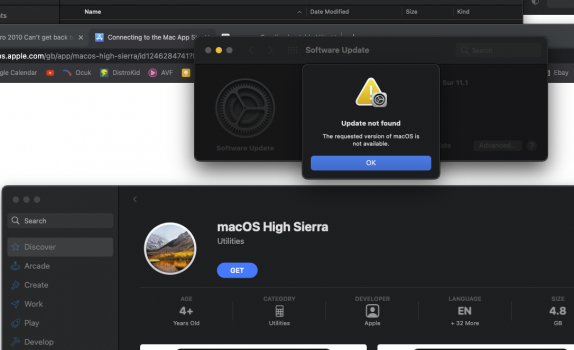I am a bit stuck, my mac pro was on catalina, which was on a m.2 in a pci express expansion slot, the ssd was faulty and i have no OS now, I was running a HD7950 to have metal support but I still have a 5770 for boot screens if I need it. As i don't have an operating system to create a bootable USB how can I get back to an operating system?
I have a new Mac Mini M1 but for some reason it won't let me open previous operating systems to try and make a thumbdrive.
I am a bit stuck so any help would be greatly appreciated, even if I can just get back to the last support OS (High sierra???)
thanks
I have a new Mac Mini M1 but for some reason it won't let me open previous operating systems to try and make a thumbdrive.
I am a bit stuck so any help would be greatly appreciated, even if I can just get back to the last support OS (High sierra???)
thanks



